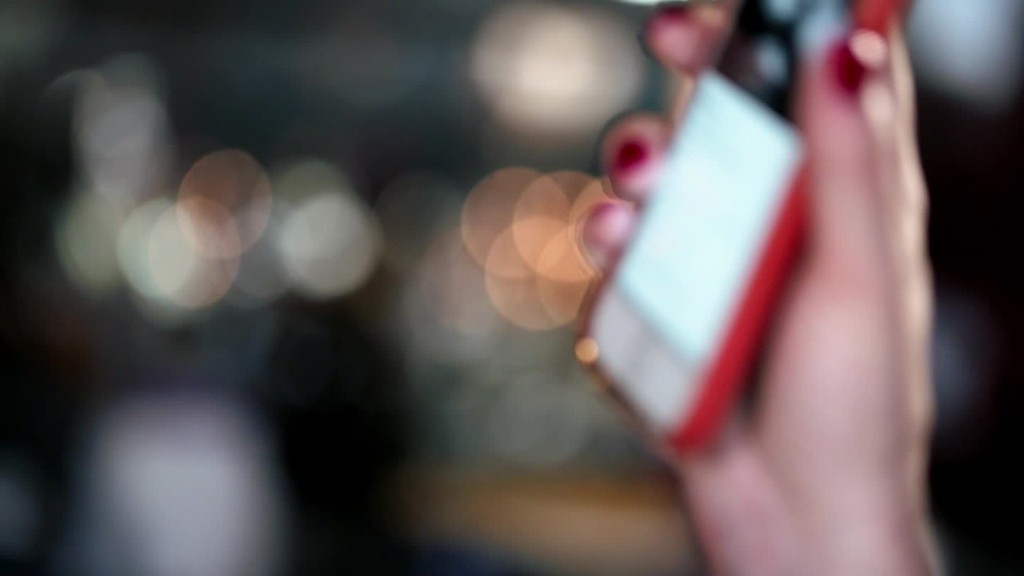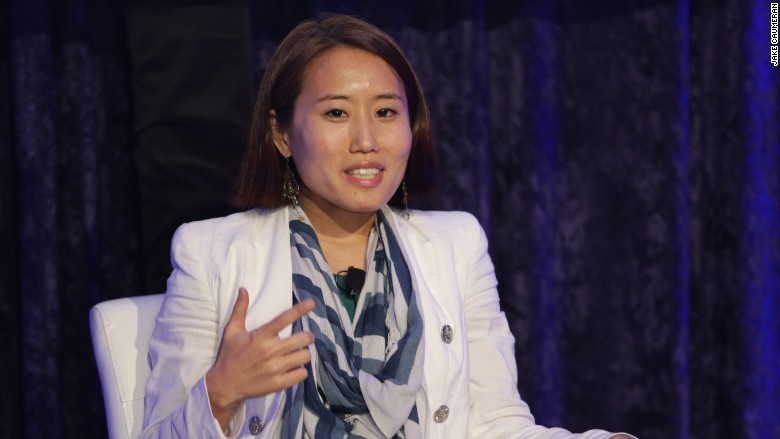
Rejecting an investment from billionaire Mark Cuban can result in a big fallout.
That was the case for Arum Kang, cofounder of dating app Coffee Meets Bagel.
Kang and her two sisters pitched Cuban and the other sharks on ABC's Shark Tank in an episode that aired in January 2015. Cuban bit: He offered $30 million for the entire company, the largest offer in the show's history at the time.
But the women didn't accept his deal, and Kang said the vitriol was intense.
"It was one of the first times I felt like we were being attacked perhaps because of [our] gender," said Kang onstage at the Montgomery Summit on Tuesday.

81-year-old eHarmony founder on gay marriage and Tinder
Kang said the insults -- which came in the form of emails, app reviews and YouTube comments -- were largely the same sentiment: "Greedy sisters." They were called everything from spoiled to stupid.
"At some point, I did wonder, if I were a guy, would I have been called all of these names?" Kang said on a a panel moderated by CNNMoney's Cristina Alesci.
Alesci responded: "You probably would've been called smart."
"Or ambitious, bold," said Kang.
She later told CNNMoney that she wondered if people would have praised the decision if they were men, rather than calling them "gold diggers."
"We said 'no' for good reasons, but the amount of emails and comments we got for rejecting that offer were incredible," she added.
The sisters rejected the $30 million because they believed that Coffee Meets Bagel would one day be worth much more. Instead, they wanted Cuban to invest $500,000 in exchange for a 5% stake in the company.
Dating app founder fights back: "We aren't elitist"
"People don't realize when they say these things that there is subconscious bias ... I think the fact that we were women played into people's perceptions," Kang said.
The women were also harshly criticized for their salaries: $100,000 each, even though they spent $1 million to bring in $1 million in sales.
Kang said that, while their salaries might not make sense to many Americans, it's not atypical in San Francisco, given the high cost of rent. She said they didn't even take a salary when they first started the company -- and the increases been incremental.
On the show, the women said that they were expecting to bring in $10 million in sales last year. While it's free to use the app, users can purchase premium features. Kang said between 2% and 8% of users opt to pay.
Kang said they didn't meet that goal -- but that's because they were laser focused on user growth.
Contrary to what many thought, Kang said appearing on the show wasn't merely a PR stunt.
The women were raising money -- they closed $7.8 million in February 2015.
The show did help the app acquire more singles. The app had between 100,000 and 500,000 users when the show aired, and Kang said there are now "millions."

